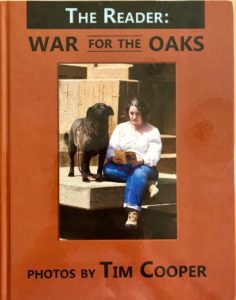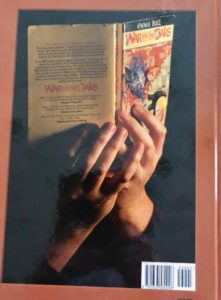 Once you’ve mastered the basics of getting words on a page and moving characters around through situations, there’s some things that (in my experience) the majority of writers need to focus on. Examples are narrative grammar, paragraphing strategies, trimming excess from sentences, and getting inside a character’s head. Here, I’m going to discuss the last of those.
Once you’ve mastered the basics of getting words on a page and moving characters around through situations, there’s some things that (in my experience) the majority of writers need to focus on. Examples are narrative grammar, paragraphing strategies, trimming excess from sentences, and getting inside a character’s head. Here, I’m going to discuss the last of those.
A lot of this is taken from correspondence with my student Hasnain. He’d asked about story structures, particularly Freitag’s Triangle, and we’d discussed where the triangle occurs in Junot Diaz’s story, Fiesta 1980. In looking at his most recent story, I’d said I thought he needed to get inside his main character’s head more.
Hasnain asked: You mentioned today that going into the narrator’s head is a good thing since it helps the reader seat more firmly with the narrator. However, here’s where I am a bit confused. I read somewhere that what people think and feel should be shown in a sensory way through their actions and interactions with others. If I go into the narrator’s head, wouldn’t I be telling? In my story, this would be if the narrator thinks about how he wants to put Sal’s love to the test.
My reply:
Let’s go back to Fiesta. Here’s some places where I think we’re particularly inside the narrator’s head and seeing his thoughts.
- We were all dressed by then, which was a smart move on our part. If Papi had walked in and caught us lounging around in our underwear, he would have kicked our asses something serious.
- Rafa gave me the look and I gave it back to him; we both knew Papi had been with that Puerto Rican woman he was seeing and wanted to wash off the evidence quick.
- Not that me or Rafa loved baseball; we just liked playing with the local kids, thrashing them at anything they were doing. By the sounds of the shouting, we both knew the game was close, either of us could have made a difference.
- But even that little bit of recognition made me feel better.
- This was how all our trips began, the words that followed me every time I left the house.
Another possible way to do this is by showing the thoughts on the page as words that echo what’s going through the narrator’s mind. Here I’m going to refer you to a piece of mine that appeared in Clarkesworld Magazine, The Worm Within, and hope you’ll forgive me for using my own stuff, but it’s easier to go to it for examples than hunt around for other stories.
Here’s a few passages where I’ve used that technique (note that it’s also an unreliable narrator – being inside the head of an unreliable narrator is a tricky strategy but awesome when effective):
- Nude, I revel in my flesh, dancing in the hallway to feel the body’s sway and bend. Curved shadows slide like knives over the crossworded tiles on the floor, perfect black and white squares. If there were a mirror I could see myself.
- I don’t know where he lives in my body. Surely what feels like him winding, wormlike, many-footed and long-antennaed through the hallways of my lungs, the chambers of my heart, the slick sluiceway of my intestines “” surely the sensation is him using his telekinetic palps to engage my nervous system. I think he must be curled, encysted, an ovoid somewhere between my shoulder blades, a lump below my left rib, a third ovary glimmering deep in my belly.
- I walk in the park. Where did all these robots come from? What do they want? They look like the people that built them, and they walk along the sidewalk, scuffed and marred by their heavy footsteps. They pretend. That’s the only thing that saves me, the only thing that lets me walk among them pretending to be something that is pretending to be me.
Present tense works very well for this, I’ve found. Here, as another example, is an extended passage from the novel I’m grappling with:
The blade slices so close to my eyeball that my upper eyelashes brush against it. I pull back from that silver line hanging sideways in the air, roll on my heels on the gritty tiles.
The crowd is silent, watching from the vast stands. Not that many of them here, for a challenge match, particularly one no one thinks Crysa can win. But the fact that the Duke is here, watching, brings many.
Snap my left fist forward. Almost catch her.
Almost drive the side of the little round shield into her ribs as I push towards her. But she goes left, dodges with an exhalation that hangs in the frosty air between us.
Bitch is quick and fast as that Champion in the Southern Isles.
Built like her too.
Not as experienced, though. Spring’s always represented by someone young. Fresh.
She’s off balance from the step. Weight on that heel.
Make as though to kick forward into the other. Sweep a foot backward, into her calf. Make her falter.
You can even go so far as to mark thoughts as thoughts, usually by italicizing them.
Here’s a couple of passages from Jeff VanderMeer’s Finch, where we hear Finch’s thoughts:
- Am I dead? he thought sometimes, walking down that green carpet he remembered from a different city, a different time. Am I a ghost?
- Six in the afternoon. Time to leave. He packed Heretic’s list in a satchel and holstered his miserable gun. Watched Blakely and Gustat put on spore gas masks “just in case.” Just in case of what? Just in case there’s one fungus in the whole damn city you haven’t been exposed to yet?
Stephen King is a master of this. Here’s a lovely, complicated bit of it in Salem’s Lot. It’s a three part structure: A) a description of what he’s thinking about, followed by b) bits of the Catholic prayer for the dead repeating itself in his head and then c) a reference to the words of a profane ritual conducted earlier in the book. They’re designated with tokens of punctuation, such as italics and parentheses. 123, 123, 123, and so on, deliberate as any dance step:
The Catholic prayer for the dead began to run through his mind, the way things like that will for no good reason. He had heard Callahan saying it while he was eating his dinner down by the brook. That, and the father’s helpless screaming.
Let us pray for our brother to our Lord Jesus Christ, who said…
(O my father, favor me now.)
He paused and looked blankly down into the grave. It was deep, very deep. The shadows of coming night had already pooled into it, like something viscid and alive. It was still deep. He would never be able to fill it by dark. Never.
I am the resurrection and the life. The man who believes in me will live even though he die…
(Lord of flies, favor me now.)
Yes, the eyes were open. That’s why he felt watched. Carl hadn’t used enough gum on them and they had flown up just like window shades and the Glick kid was staring at him. Something ought to be done about it.
…and every living person who puts his faith in me will never suffer eternal death…
(Now I bring you spoiled meat and reeking flesh.)
What do you think? How many of these devices have you used?
Enjoy this writing advice and want more content like it? Check out the classes Cat gives via the Rambo Academy for Wayward Writers, which offers both on-demand and live online writing classes for fantasy and science fiction writers from Cat and other authors, including Ann Leckie, Seanan McGuire, Fran Wilde and other talents! All classes include three free slots.
Prefer to opt for weekly interaction, advice, opportunities to ask questions, and access to the Chez Rambo Discord community and critique group? Check out Cat’s Patreon. Or sample her writing here.











One Response